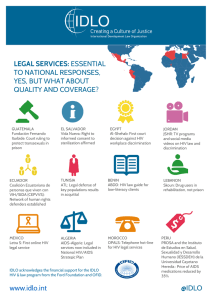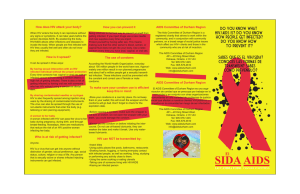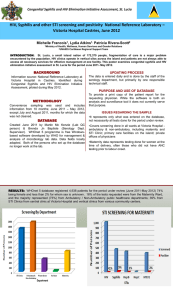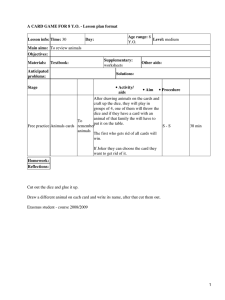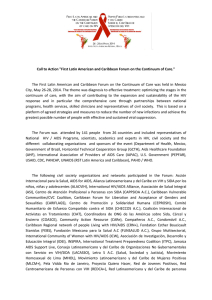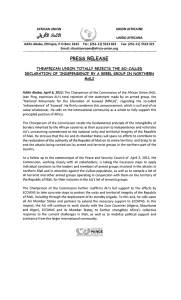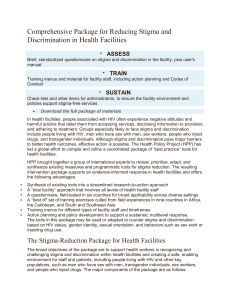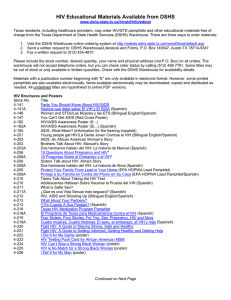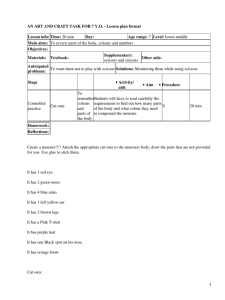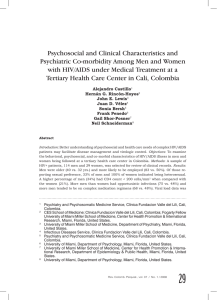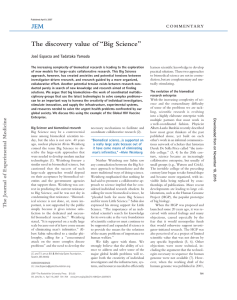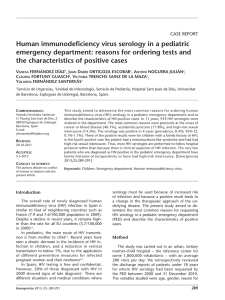The Youth Track: building a new generation of leadership
Anuncio
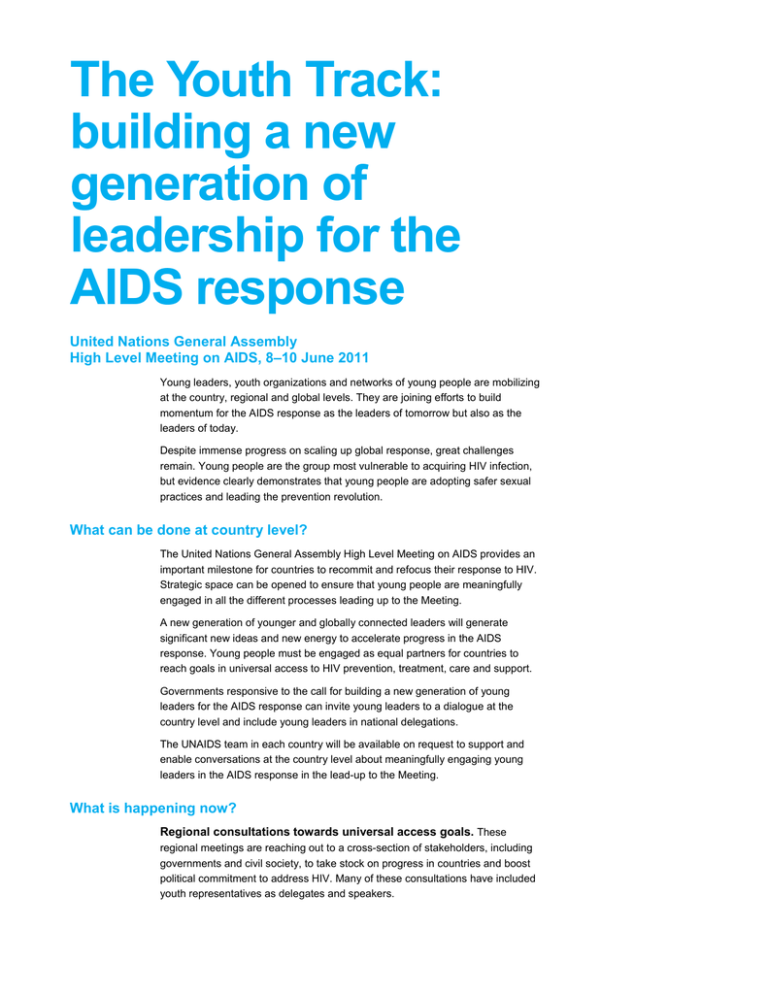
The Youth Track: building a new generation of leadership for the AIDS response United Nations General Assembly High Level Meeting on AIDS, 8–10 June 2011 Young leaders, youth organizations and networks of young people are mobilizing at the country, regional and global levels. They are joining efforts to build momentum for the AIDS response as the leaders of tomorrow but also as the leaders of today. Despite immense progress on scaling up global response, great challenges remain. Young people are the group most vulnerable to acquiring HIV infection, but evidence clearly demonstrates that young people are adopting safer sexual practices and leading the prevention revolution. What can be done at country level? The United Nations General Assembly High Level Meeting on AIDS provides an important milestone for countries to recommit and refocus their response to HIV. Strategic space can be opened to ensure that young people are meaningfully engaged in all the different processes leading up to the Meeting. A new generation of younger and globally connected leaders will generate significant new ideas and new energy to accelerate progress in the AIDS response. Young people must be engaged as equal partners for countries to reach goals in universal access to HIV prevention, treatment, care and support. Governments responsive to the call for building a new generation of young leaders for the AIDS response can invite young leaders to a dialogue at the country level and include young leaders in national delegations. The UNAIDS team in each country will be available on request to support and enable conversations at the country level about meaningfully engaging young leaders in the AIDS response in the lead-up to the Meeting. What is happening now? Regional consultations towards universal access goals. These regional meetings are reaching out to a cross-section of stakeholders, including governments and civil society, to take stock on progress in countries and boost political commitment to address HIV. Many of these consultations have included youth representatives as delegates and speakers. The Civil Society Hearing. A task force comprising 12 representatives from a broad range of regions and constituencies are responsible for preparing the Civil Society Hearing on 8 April 2011. The youth constituency is represented in the Hearing and will link up with the mobilization efforts made by youth networks and organizations in the other processes of the High Level Meeting. The Mali Youth Summit on HIV. The Mali Youth Summit on HIV is taking place in Bamako, Mali on 15–17 April 2011. The Summit is a global gathering of more than 100 young leaders. The participants will develop a call for action with key messages from young leaders, advocated through the processes of the High Level Meeting. The call for action will be launched as an online petition to mobilize and leverage the voices of young people. The High Level Meeting. This is an unprecedented opportunity for United Nations Member States to demonstrate and build space for young leaders in the AIDS response by including young people as regular members in their delegations. A young leaders side event during the Meeting will follow up the call for action made by the participants at the Mali Youth Summit on HIV and will focus on young leaders as agents of change in the HIV response, in scaling up prevention and in setting the agenda for leadership based on shared responsibility.
